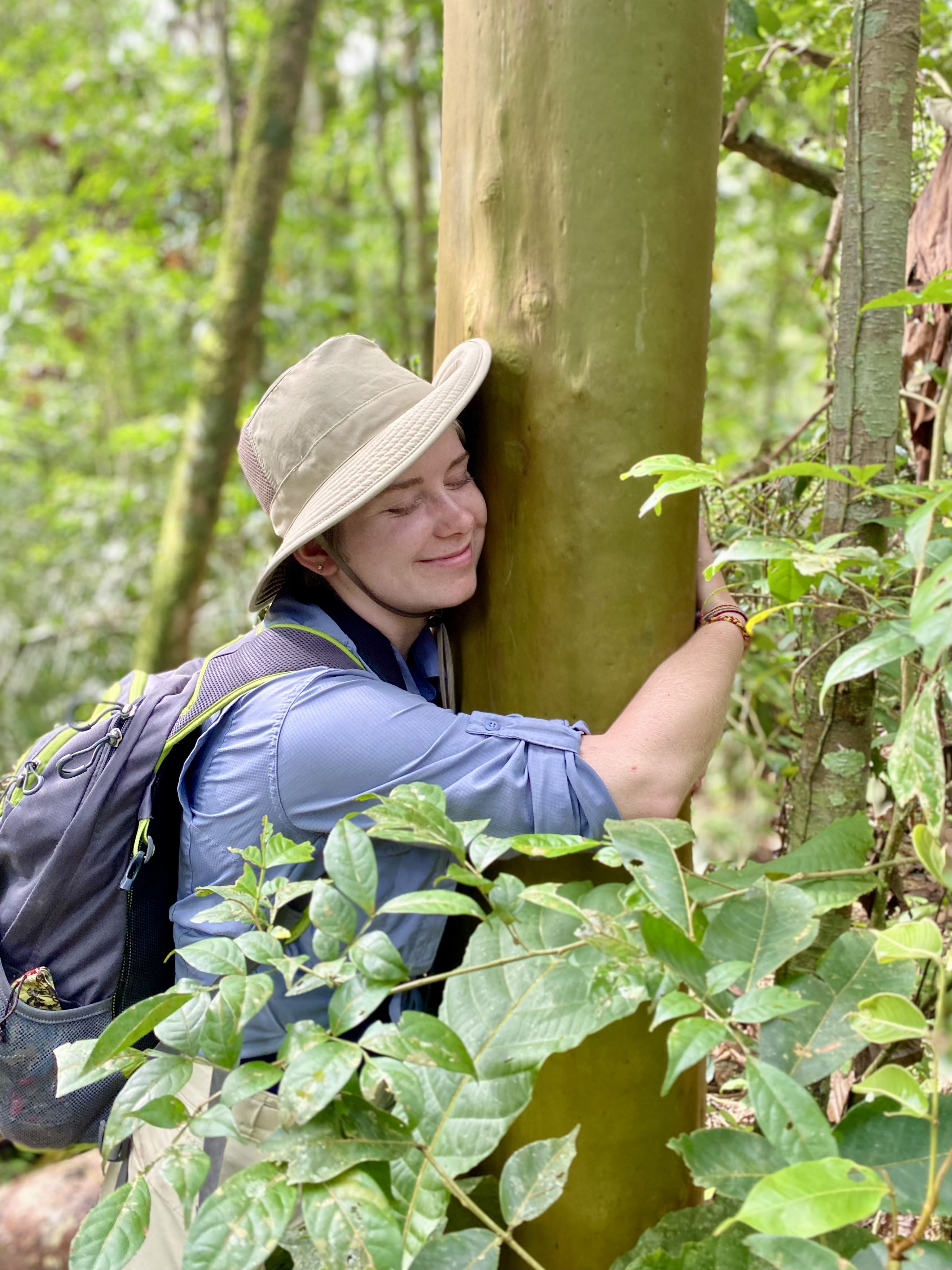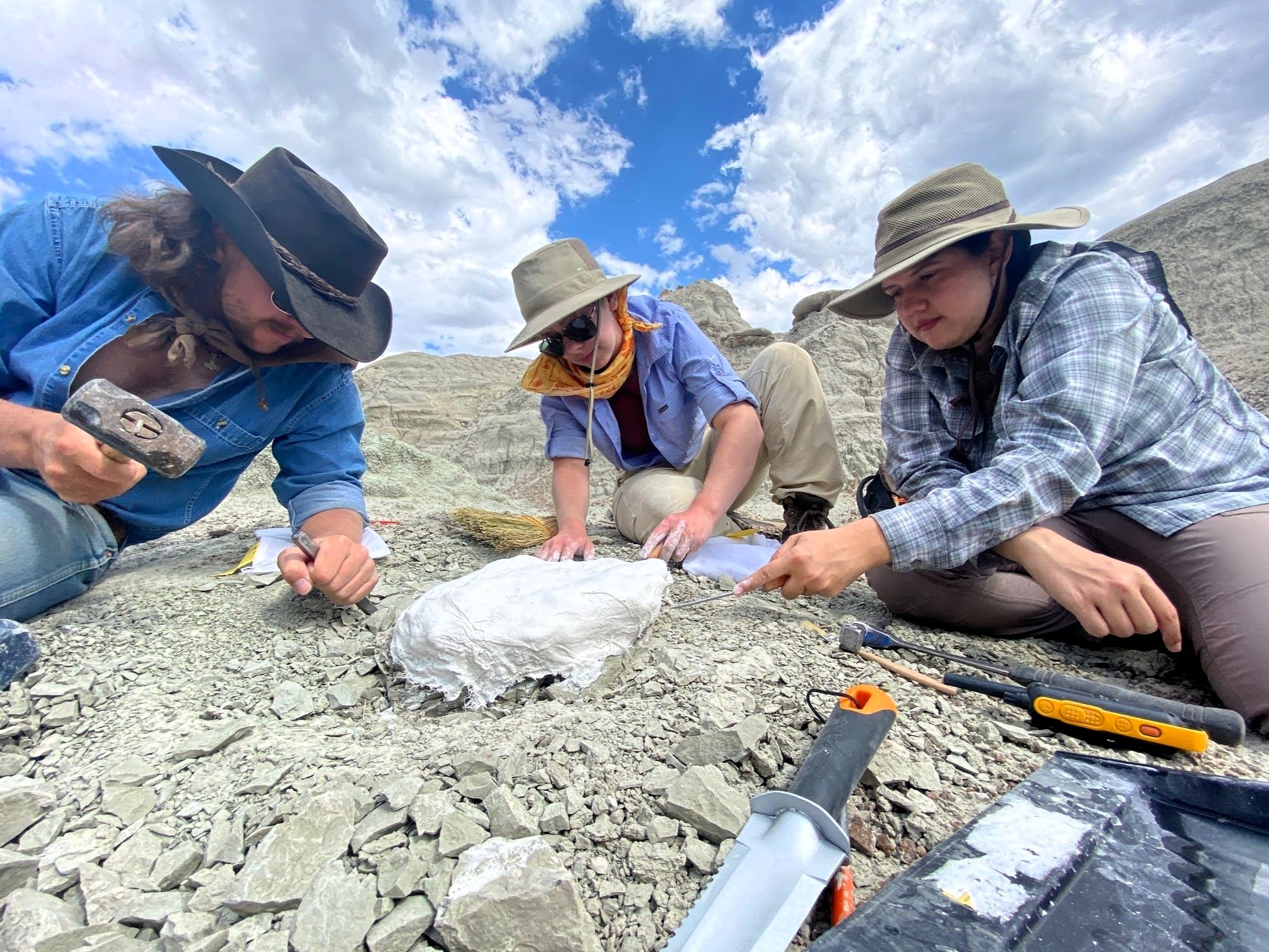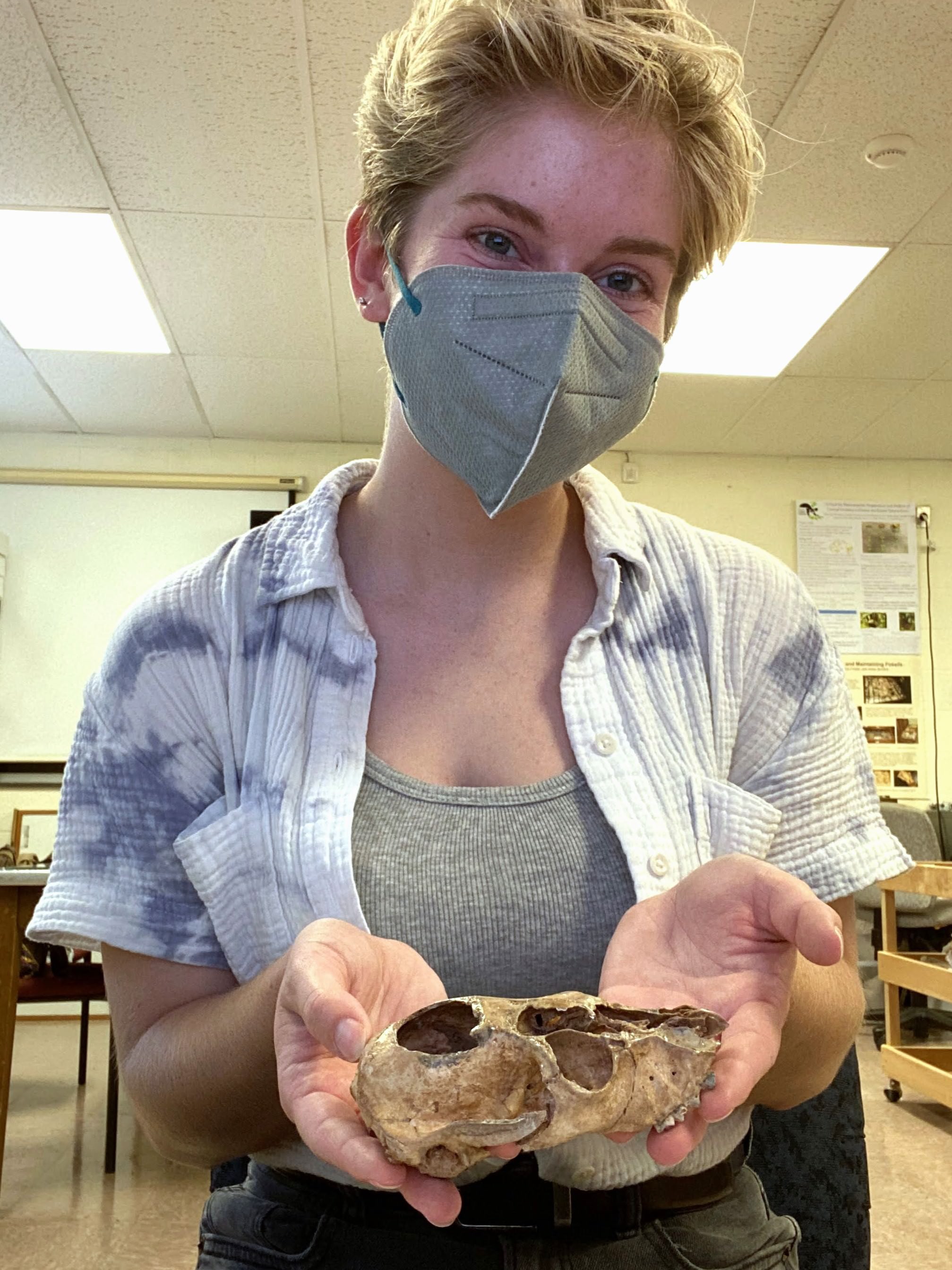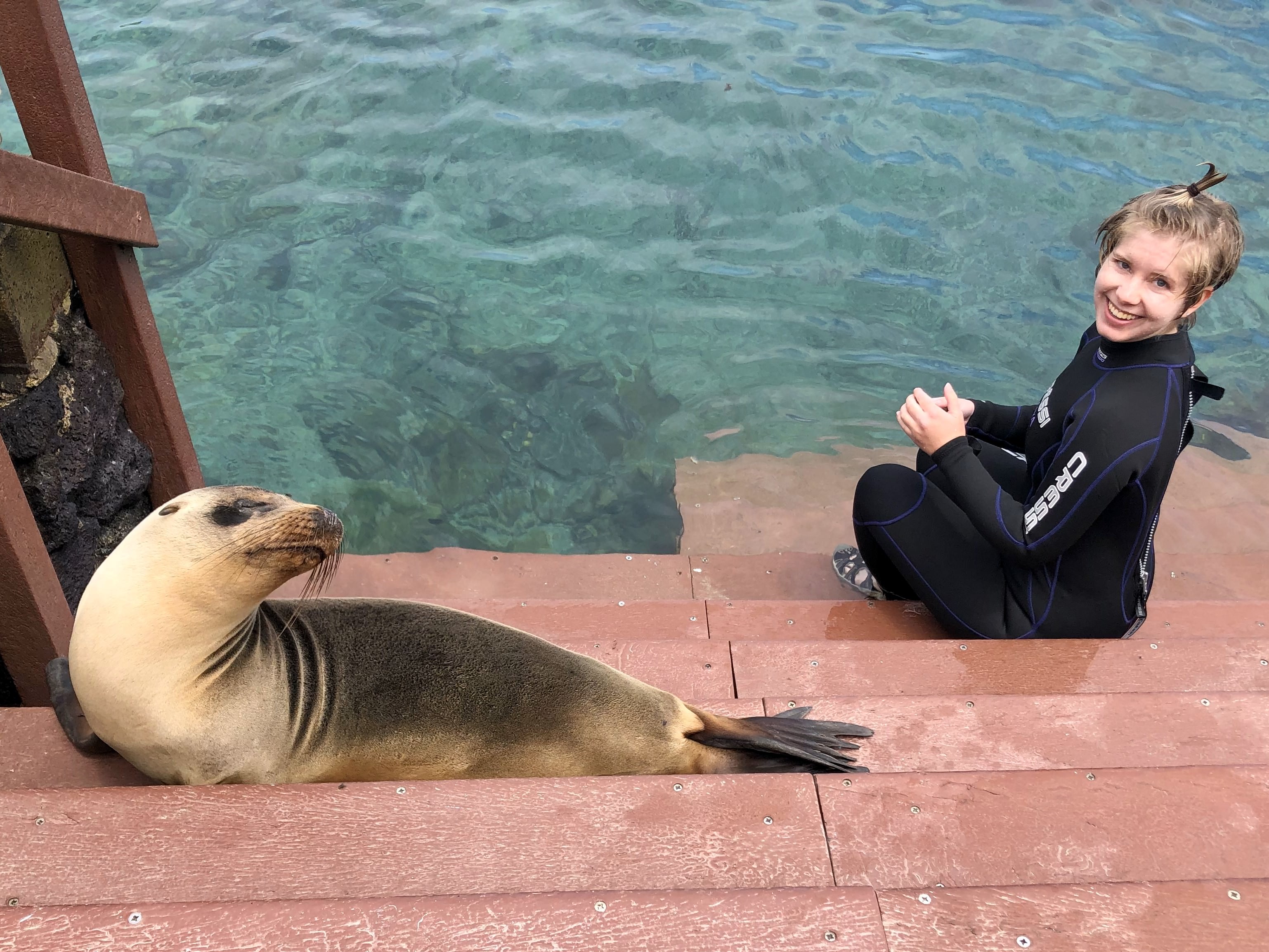Natural Sciences: Ren Collins '23/Take 5 '24




Major(s) and minor(s)
B.S. Environmental Science
Minors: Film & Media Studies; Biology
Hometown
Covington, Kentucky
Areas of interest/focus in research
Paleontology, ecology, animal behavior, and conservation
Labs / departments / offsite programs where research was conducted
Paleo-anatomy undergraduate thesis (2022 - present) - UR's Earth and Environmental Science department with supervision from Duke University's Duke Lemur Center Museum of Natural History (DLCMNH)Scientific communication archival research and documentary screenwriting (2020 - present) - UR's Meliora Scholars program
Ecology and evolutionary biology field research (2022) - UR's Ecology and Evolutionary Biology department, ROC Galápagos study abroad program
Behavioral ecology independent study (2021) - Cornell University's Shoals Marine Lab
Endocrinology and conservation lab work (2018 - 2020) - Cincinnati Zoo and Botanical Garden's Center for Conservation and Research of Endangered Wildlife (CREW)
About me...
Howdy! My name is Regan, though I typically go by Ren. Like all good science, my primary research focus is ever-evolving, but at the moment I am interested in paleo-ecology, specifically paleo-anatomy. I look at the micro-structure of bones from extinct animals to determine how these creatures interacted with their environment and where they fit into the patchwork of our evolutionary tree. With my ongoing thesis work, I am examining the growth and development of extinct giant lemurs from Madagascar, and I do this by creating and analyzing 3D models of rare fossils at UR's Studio X extended reality hub. I have lots of experience conducting fieldwork in a variety of environments, from the deserts of Wyoming to the Amazonian rainforest, and I love to discuss all the different opportunities that exist out there for other passionate conservationists!
How has your experience as a researcher influenced your career objectives?
Unlike some folks who knew what they wanted to study since kindergarten or who found and fell in love with a lab their first semester at college, I had to explore a bit before I found my niche. As a result, my previous research experience is fairly broad, and I wouldn't have it any other way. Working with lots of different, passionate people taught me what I found exciting and what I bring to the table as a team member. But more importantly, my research experiences have taught me what I don't enjoy doing, and this was just as important (if not more) in narrowing my focus and finding my paleo-passion. Working in many different scientific environments has also taught me that my greatest strength is communicating to people about my research. As a result, I am continually looking for research avenues with a larger focus on scientific outreach and communication. This is also a great way for me to use my love of film and theater to spread awareness and information about topics I enjoy.
Campus organizations, programs, activities, clubs, awards/distinctions
Campus Groups: The Strong Jugglers, The Campus Times, Society of Earth and Environmental Science Students (SEESS)
Awards/Distinctions: Take 5 Scholar studying the cultural evolution of gender minorities in western theatre, Meliora Scholar grant recipient, Bard Center for Environmental Policy C2C Fellow, Sigma Gamma Epsilon Honorary Society for excellence in environmental science, EES Department Award for excellence in research
Fun Fact: when I'm not doing research you can usually find me...
Juggling fire or performing Shakespeare in local community productions!
Areas where I may be particularly helpful
Applying to Udall and Goldwater Fellowships Exploring resources to find environmental or ecology-based internships and research opportunities at UR and abroad Discussing potential research fields based on individual interests Suggesting EES or BEB courses to take based on future research interests Interview and poster presentation practice
What advice do you have for prospective or new researchers?
- Every researcher you encounter on your journey is going to be smart. Differentiate yourself by being kind.
- Here's a little secret: no one knows what they're doing 100% of the time and that's okay! Sometimes the best thing you can do is admit that you don't know something. The best research mentors (and friends) will help you learn, grow, and gain confidence so you can keep on shining!
- Get comfortable being uncomfortable. Don't be afraid to push yourself or take risks. And don't be scared to reach out to me or any of the other research ambassadors, even if you don't quite know what you're looking for! That's why we're here to help :)
Email me at: rcolli11@u.rochester.edu
